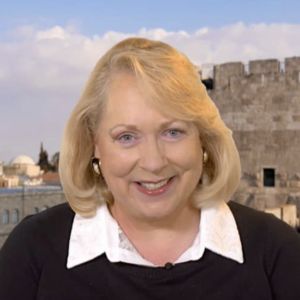Of all the countries in the world, Israel must be a place which recognizes the unique spiritual qualities of the Jewish people. It is a place where Shabbat should be observed and not desecrated publicly, as recognition of our shared heritage.
The Supreme Court of Israel recently ruled that the Tel Aviv-Jaffa municipality must enforce its own by-laws requiring stores to close on the Jewish Sabbath, threatening fines for those who flout the law. Small business owners argued that large stores which can afford the modest fines quash competition by remaining open on Shabbat and effectively drawing customers away from the smaller establishments. Some on both sides of the religious and political spectrum have lauded the ruling, while others have decried it. Ultimately, the final decision of the municipality will impact the very identity of Israel as a Jewish state.
Many liberal and secular Israelis, while supporting in principle the need to protect small business and create policies which encourage fair competition, claim the law amounts to religious coercion and has no place in a modern city like Tel Aviv and would like to see the law struck down entirely. Tel Aviv Mayor Ron Huldai wrote, “I would like to make one thing clear: We will find a legal way to keep our city open, free, and pluralistic, as it has been up till now… Once again — for good or bad — Tel Aviv-Jaffa must be a pioneer and determine the desirable and appropriate character of Shabbat in a free Jewish state and a free city like our own.”
While I understand the position of business owners, their employees and families, and am sympathetic to their need to earn a decent living, the importance of Shabbat closures goes beyond ensuring a vacation day and fair competition. Mayor Huldai speaks of determining the “desirable and appropriate character of Shabbat in a free Jewish state,” but neglects to appreciate the importance of the sanctity of the day. The character of Shabbat is not something that is meant to be determined by changing cultural values and norms. It is something that has remained sacrosanct throughout generations of exile and must continue to do so now that the Jews have returned to Israel.
The iconic Jewish writer and Zionist thinker Ahad Ha’am once pointed out, “more than the Jews have kept Shabbat, Shabbat has kept the Jews.” Throughout history, our unique connection to Shabbat has kept us united, and differentiated us from our neighbours. More than anything else, Shabbat has helped preserve our national, religious and spiritual identity. For Ahad Ha’am, Zionism meant developing the Jewish spiritual character, preserving what makes us unique as a people.
What is the Jewish people without its Jewish character? What is the Jewish state without a Jewish identity? Assyrian, Babylonian, Greek and Roman superpowers all made major contributions to world culture, but none of those nations exist today. The national identities that held them together disintegrated when they were defeated. The Jews, meanwhile, preserved our national identity in exile because our unique laws and customs followed bound us together.
One of the basic tenets of Judaism is the sanctity of Shabbat. It is the fourth of the Ten Commandments. Setting aside a day for prayer, rest and contemplation of our place in the universe and our relationship with our Creator is part of what binds Jews to one another. It is our common ground. Today, in an era where not all Jews observe the Biblical commandments of the Torah, we need something to preserve our shared identity.
Of all the countries in the world, Israel must be a place which recognizes the unique spiritual qualities of the Jewish people. It is a place where Shabbat should be observed and not desecrated publicly, as recognition of our shared heritage. This is a view shared by its leaders from Ben Gurion to Benjamin Netanyahu. In 1967, when German Chancellor Konrad Adenauer’s funeral was scheduled for Shabbat, Prime Minister David Ben Gurion walked in Berlin behind the motorcade carrying his coffin, rather than violate the sanctity of the Jewish day of rest in public. During a whirlwind 2012 visit to New York for an appearance at the United Nations General Assembly, the Prime Minister’s Office went to great lengths to at least make it possible to publicly observe Shabbat, despite scant hours between the end of Shabbat and flight times, and Prime Minister Netanyahu himself did not violate the Sabbath in public.
Israel is more than merely a state for Jews, an asylum from persecution. It is a Jewish state, a state with a unique Jewish character. It is a state where official functions serve Kosher food in recognition of our common Torah command to eat in holiness. It is a state in which mezuzot grace the doorposts of public facilities. It is a state where government officials, even if not personally observant, often wear skullcaps (kippot) when representing the nation. It is a state in which Prime Ministers are careful to observe Shabbat in public. We must preserve the sanctity of Shabbat to maintain our uniqueness as a Jewish state. Israeli supermarkets that close on Saturdays safeguard the sanctity of Shabbat by upholding a major Biblical tenant of our faith, and preserve the Jewish nature of the State of Israel.





